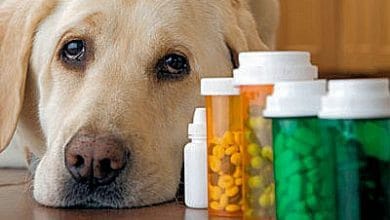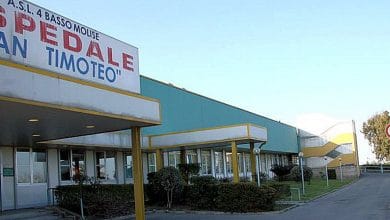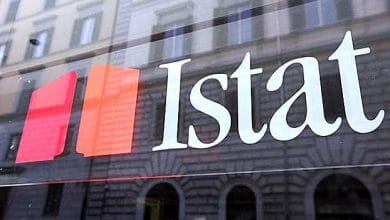
La legge 231 che individua la responsabilità aziendale in caso di coinvolgimento di dipendenti in episodi di corruzione deve essere ripensata. I protocolli per la compliance sono applicati più per limitare i danni che per prevenirli.
 Anche l’accreditamento delle strutture sanitarie con il Ssn segue logiche poco trasparenti che andrebbero cambiate. Sono questi alcuni degli spunti di una lunga intervista esclusiva rilasciata ad AboutPharma dal presidente dell’Anac Raffaele Cantone, a pochi giorni dall’annuale relazione in Parlamento prevista per il 6 luglio.
Anche l’accreditamento delle strutture sanitarie con il Ssn segue logiche poco trasparenti che andrebbero cambiate. Sono questi alcuni degli spunti di una lunga intervista esclusiva rilasciata ad AboutPharma dal presidente dell’Anac Raffaele Cantone, a pochi giorni dall’annuale relazione in Parlamento prevista per il 6 luglio.
Contratti pubblici, incarichi e nomine, entrate e uscite. E poi ancora sperimentazioni cliniche, rapporti con i privati, valutazione e ricerca su farmaci e dispositivi medici, attività libero-professionali e liste di attesa. La sanità è “naturalmente” esposta a illeciti appetiti su cui indagano le Procure di mezza Italia e su cui l’Autorità nazionale anticorruzione pone la lente d’ingrandimento.
Lo fa con una nuova strategia ispettiva, su vecchie e nuove aree di rischio, nel tentativo di prevenire gli effetti nefasti sul buon funzionamento della cosa pubblica.
Le aziende sanitarie e ospedaliere sono al secondo posto (17,24%) nella classifica delle amministrazioni per cui l’Anac ha ricevuto più segnalazioni. In prima posizione, le Regioni e gli enti locali, su cui si è concentrato il 44,83% del “whistleblowing”.
 06/07/2017
06/07/2017
Relazione sull’attività Anac del 2016
On line la presentazione del Presidente Cantone e la Relazione annuale
Il Presidente dell’Autorità Nazionale Anticorruzione, Raffaele Cantone, ha presentato la Relazione sull’attività svolta dall’Anac nel 2016, alla presenza del Presidente della Repubblica, Sergio Mattarella, presso la Camera dei Deputati.
Presentazione del Presidente Cantone – pdf 465 kb
Relazione per l’anno 2016 – pdf 2,7 Mb
Tavolo ispettivo ad hoc su settore sanità
È stata posta grande attenzione al settore della sanità, che per i rapporti curati da organizzazioni indipendenti, i tanti fatti di cronaca e le ingenti risorse investite continua a destare particolare preoccupazione.
Grazie alla proficua collaborazione con il Ministero della salute e Agenas, si sono individuate le aree più vulnerabili ad abusi e corruzione (gli appalti, i concorsi, l’accreditamento, la gestione dei proventi delle sperimentazioni cliniche, delle liste d’attesa e delle camere mortuarie) e si è chiesto di adottare per esse specifiche misure preventive, la cui attuazione sarà oggetto di un piano ispettivo ad hoc.
Un’attività volta non a criminalizzare ma a preservare un settore che ha grandi eccellenze e che consente a tutti l’accesso alle cure!
Estratto dalla Relazione di Cantone
Related news: Decreto Legislativo 8 giugno 2001, n. 231
ANAC.Linee Guida Codic Comportamento SSN. [vedi in fomdo a pag. 10]
Editorial. The responsibility of the employer and the ISF
LEGISLATIVE DECREE 8 June 2001, n. 231
Article 5
Responsibility of the entity
1. The entity is liable for crimes committed in its interest or to its advantage:
a) by persons who hold representation, administration or management functions of the entity or of one of its organizational units with financial and functional autonomy as well as by persons who exercise, even de facto, the management and control of the same;
b) by persons subject to the management or supervision of one of the persons referred to in letter a).
2. L’ente non risponde se le persone indicate nel comma 1 hanno agito nell’interesse esclusivo proprio o di terzi.
Article 6
Persons in top positions and organization models of the entity
1. If the offense was committed by the persons indicated in article 5, paragraph 1, letter a), the entity is not liable if it proves that:
a) the management body has adopted and effectively implemented, before the crime was committed, organizational and management models suitable for preventing crimes of the type that occurred;
b) the task of supervising the functioning and observance of the models and taking care of them
updating has been entrusted to a body of the entity with independent powers of initiative and control;
c) the persons committed the crime by fraudulently eluding the organization and management models;
d) there has been no omission or insufficient supervision by the body referred to in letter b).
2. In relation to the extension of the delegated powers and the risk of committing the offences, the models referred to in letter a), of paragraph 1, must meet the following requirements:
a) identify the activities in which crimes may be committed;
b) envisage specific protocols aimed at planning the formation and implementation of the entity's decisions in relation to the crimes to be prevented;
c) identify ways of managing financial resources suitable for preventing the commission of crimes;
d) establish information obligations towards the body responsible for supervising the
operation and observance of models;
e) introduce a disciplinary system suitable for sanctioning failure to comply with the measures indicated in the model.
3. The organization and management models can be adopted, guaranteeing the requirements referred to in paragraph 2, on the basis of codes of conduct drawn up by the associations representing the entities, communicated to the Ministry of Justice which, in agreement with the competent Ministries, can formulate, within thirty days, observations on the suitability of the models to prevent crimes.
4. In small entities, the tasks indicated in letter b), of paragraph 1, may be performed directly by the executive body.
4-bis. In joint stock companies, the board of statutory auditors, the supervisory board and the management control committee may perform the functions of the supervisory body referred to in paragraph 1, letter b) (1).
5. In any case, the confiscation of the profit that the entity has derived from the crime is ordered, also in the form of an equivalent.
(1) Paragraph inserted by article 14, paragraph 12, of Law 12 November 2011, n. 183, starting from 1 January 2012, ai
pursuant to article 36, paragraph 1, of the same Law 183/2011
__________________________________________
Ed.: SoCompanies usually make informants sign acknowledgment of the laws in force on corruption. In this way, whatever illegal thing happens, even on the orders of the Area Manager or some other senior figure, the responsibility falls solely and exclusively on the ISF. In fact, the signature on that document demonstrates that the company has informed the ISF about the provisions of the law, that the company has adopted a "policy" and therefore, even if he has "obeyed" superior verbal provisions, the The company is not responsible for it, unless there is a written document demonstrating the instigation to commit a crime.
In casi di “istigazione” all’illecito, l’ISF dovrebbe denunciare il superiore per il reato che vorrebbe fargli compiere. In assenza di un Albo o di qualche altra forma di tutela, è facile a dirsi, ma è intuitivo comprendere il perché non verrà fatto. Mediti il Dr. Cantone, mediti!





